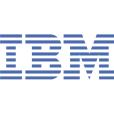 Medtronic, Inc. (NYSE: MDT) and Kyphon (NASDAQ: KYPH) today announced that the companies have signed a definitive merger agreement under which Medtronic will acquire all of the outstanding shares of Kyphon for $71 per share in cash. The transaction, which was unanimously approved by the boards of directors of both companies, is valued at approximately $3.9 billion. This excludes $320 million in payments associated with the St. Francis Medical Technologies, Inc. and Disc-O-Tech Medical Technologies, Ltd. transactions.
Medtronic, Inc. (NYSE: MDT) and Kyphon (NASDAQ: KYPH) today announced that the companies have signed a definitive merger agreement under which Medtronic will acquire all of the outstanding shares of Kyphon for $71 per share in cash. The transaction, which was unanimously approved by the boards of directors of both companies, is valued at approximately $3.9 billion. This excludes $320 million in payments associated with the St. Francis Medical Technologies, Inc. and Disc-O-Tech Medical Technologies, Ltd. transactions.The acquisition price represents a 32% premium over Kyphon’s closing stock price on July 26, 2007 of $53.68 and a 35% premium over Kyphon’s 30-day average trading price of $52.76 per share. The transaction, which is anticipated to close in the first calendar quarter of 2008, is expected to be neutral to Medtronic earnings in the first full fiscal year after closing and accretive thereafter. Medtronic expects the merger to yield significant revenue, cost and tax synergies.
“We expect our combination with Kyphon to help accelerate the growth of Medtronic’s existing spinal business by extending our product offerings into some of the fastest growing product segments and enabling us to provide physicians with a broader range of therapies for use at all stages of the care continuum,” said Art Collins, chairman and chief executive officer of Medtronic. “Importantly, the combination will also enable more patients of all ages to receive the benefits of modern, minimally invasive spinal treatments earlier in their care, with life-style friendly options that are simpler, faster and less invasive than many traditional surgical treatments.
“We have great respect for Rich Mott and his team and look forward to Kyphon’s employees joining Medtronic at the close of the transaction. Kyphon’s world-class, global sales force will play a central role in the continued development of our spinal business,” Collins concluded.
“We are very enthusiastic about the opportunity to deliver outstanding value for our shareholders that fully reflects Kyphon’s innovation and growth potential. This merger also combines two recognized industry leaders in spinal treatments,” said Richard Mott, president and chief executive officer of Kyphon. “By merging our complementary strengths and collective resources into one organization, we will meaningfully increase our ability to ensure we meet the needs of our clinician customers around the world and the patients they serve. This combination also offers our employees the opportunity to become part of an organization with a shared vision and the depth of resources that are increasingly beneficial for sustained success in our industry. We look forward to working with Medtronic to complete the transaction quickly and seamlessly. Our board of directors believes that this acquisition is in the best interests of our shareholders, employees and other stakeholders and has unanimously voted to recommend that Kyphon shareholders vote in favor of it.”
The two companies’ product lines and geographic presence are highly complementary. While both companies have expertise in minimally invasive, highly effective treatments, Medtronic’s spinal surgery focus has been on providing treatment options for younger patients who are suffering from scoliosis and degenerative disc disease in the cervical and lumbar spine. Kyphon’s focus has been on treating older patients suffering from vertebral compression fractures and spinal stenosis. Together, the combined entity will be able to leverage its knowledge of modern fusion, dynamic stabilization, artificial disc replacement, biologics, vertebral augmentation, interspinous process decompression, disc disease diagnosis, navigation and minimally invasive techniques to serve patients with a broader variety of spinal disorders in order to alleviate pain and restore health for more patients.
The combined entity will also have a larger and expanded base of customers than Medtronic serves alone. Medtronic primarily serves orthopaedic and neurological surgeons who specialize in spinal surgery. Kyphon serves these same physicians and also has a significant customer base with interventional radiologists and interventional neuroradiologists.
The transaction will be financed by a combination of cash on the balance sheet and debt.
The transaction is subject to customary closing conditions, including approval by antitrust regulators as well as Kyphon shareholders.
Cleary Gottlieb Steen & Hamilton LLP is acting as legal advisor to Medtronic and Goldman, Sachs & Co. and Piper Jaffray are acting as financial advisors. Latham & Watkins LLP is acting as legal advisor to Kyphon and JPMorgan is acting as financial advisor.
Analyst Conference Call/Webcast
Medtronic and Kyphon will host an investor conference call (612-332-1210) later this morning at 7:30 a.m. central time (5:30 a.m. pacific time) to discuss the Kyphon acquisition. For complete instructions on how to participate in the conference call, or to listen to the live audio webcast or a replay of the webcast, please refer to the Investor Relations sections at http://www.medtronic.com or http://www.kyphon.com.
ABOUT MEDTRONIC
Medtronic, Inc. (www.medtronic.com), headquartered in Minneapolis, is the global leader in medical technology – alleviating pain, restoring health, and extending life for millions of people around the world.
ABOUT KYPHON INC.
Kyphon develops and markets medical devices designed to restore and preserve spinal function and diagnose the source of low back pain using minimally invasive technologies. The company’s products are used in balloon kyphoplasty for the treatment of spinal compression fractures caused by osteoporosis or cancer, in the Functional Anaesthetic Discography™ (F.A.D.™) procedure for diagnosing the source of low back pain, and in the Interspinous Process Decompression (IPD®) procedure for treating the symptoms of lumbar spinal stenosis. More information about the company and its products can be found at www.kyphon.com and its patient education Web site, www.spinalfracture.com.













